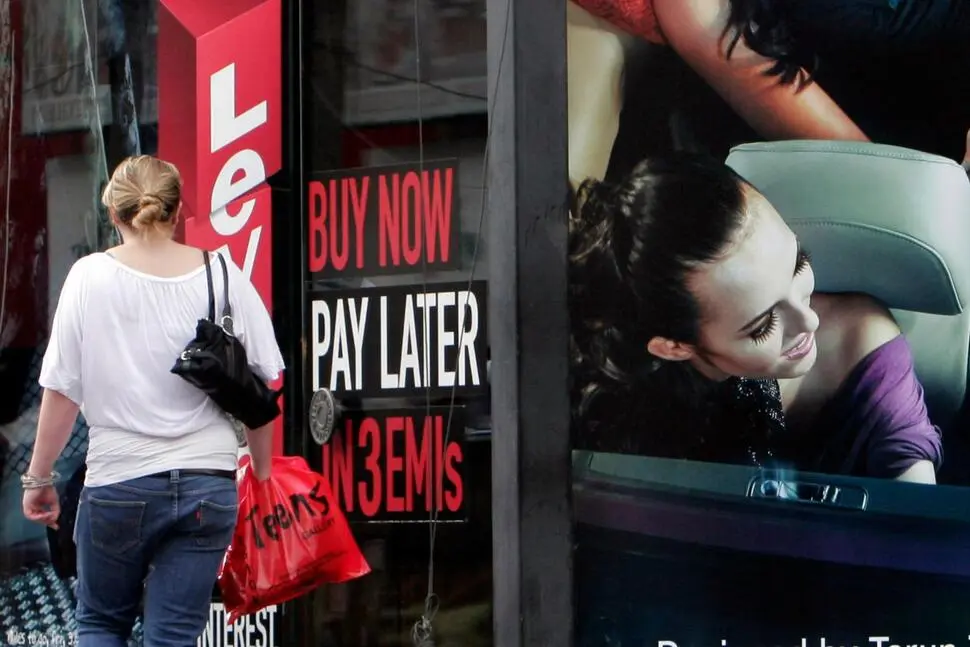Buy Now, Pay Later Loans to Be Reflected in Credit Scores for the First Time
Major credit reporting changes are coming: ‘Buy Now, Pay Later’ installment loans will soon be factored into consumer credit scores, a move that could reshape how millions of Americans manage debt, spending, and access to credit.
A major shift is underway in the world of consumer credit: starting later this year, 'Buy Now, Pay Later' (BNPL) loans — the fast-growing installment payment option offered by retailers — will begin affecting credit scores for millions of Americans. The change marks a significant evolution in how personal financial behavior is measured, and it could have wide-ranging consequences for borrowing, lending, and financial inclusion. BNPL loans have exploded in popularity over the past three years, especially among younger consumers and online shoppers.
Services like Afterpay, Klarna, Affirm, and Zip allow users to split purchases into smaller, interest-free payments, often with no credit check required. But until now, most of these transactions have not been reported to traditional credit bureaus, leaving them invisible in the eyes of lenders. That’s about to change.
Credit Bureaus Adapt to a New Financial RealityEquifax, Experian, and TransUnion — the three major credit reporting agencies — have all confirmed plans to begin including BNPL data in credit reports and scoring models. While implementation will vary slightly between agencies, the overall direction is clear: BNPL activity is no longer off the radar. Experian has already started rolling out a dedicated section in its credit reports to reflect BNPL history.
Equifax, which began accepting BNPL data in 2022, will now begin integrating it into VantageScore models. TransUnion is working with lenders to ensure accuracy and consistency before full-scale inclusion. “This is a pivotal moment,” said Mark Begor, CEO of Equifax.
“We are modernizing credit data to reflect how consumers actually borrow and spend in today’s economy. ”Why It Matters: The Good and the RiskySupporters of the change argue that incorporating BNPL into credit scores can benefit responsible borrowers, especially those with limited credit history. On-time payments can build credit, much like a traditional installment loan.
That’s especially valuable for younger adults, immigrants, or anyone rebuilding after financial setbacks. “Consumers who repay BNPL loans on time deserve to have that reflected in their credit files,” said Rod Griffin, senior director of public education at Experian. “This change can help millions boost their scores and access more affordable credit.
”However, there are also potential downsides. Critics warn that BNPL loans, which often feel invisible to users due to their short-term nature and lack of interest, can lead to overborrowing. By spreading out payments across multiple platforms, some consumers may unintentionally take on more debt than they can handle.
“When BNPL loans start hitting credit reports, it could be a wake-up call for borrowers who’ve overextended themselves,” said Chi Chi Wu, staff attorney at the National Consumer Law Center. “The risk of negative reporting is very real. ”Late payments or defaults on BNPL plans — even small ones — could now drag down a consumer’s credit score.
Inconsistent standards among BNPL providers regarding late fees and payment grace periods further complicate matters. How It Will WorkUnlike traditional loans or credit cards, BNPL plans are often short-term — typically four equal payments over six weeks. This presents unique challenges for credit reporting.
The credit bureaus have had to adjust their systems to accommodate these unconventional structures. Some models may treat BNPL loans as installment credit, while others may group them separately. The exact impact on a credit score will depend on:- The frequency and volume of BNPL use.
- Whether payments are made on time. - The scoring model used (e. g.
, FICO vs. VantageScore). VantageScore 4.
0 is among the first models being adapted to reflect BNPL data. FICO has not yet confirmed a specific model that will integrate BNPL history, but sources suggest updates are in development. BNPL providers will need to supply data to the credit bureaus in standardized formats.
Some — like Affirm — already report to Experian, while others are still negotiating how and when to join the system. Who Will Be Affected Most?BNPL is especially popular among Gen Z and Millennial consumers. According to a report by the Consumer Financial Protection Bureau (CFPB), more than 45% of BNPL users are under the age of 34.
Many of them have thin or non-existent credit files, meaning this change could have a disproportionate effect — for better or worse — on younger Americans. Women and low-income consumers also make up a significant share of BNPL users, according to data from industry analysts. While some see BNPL as a gateway to building credit, others worry it may deepen financial precarity for already vulnerable groups.
“It’s a double-edged sword,” said Lauren Saunders of the National Consumer Law Center. “For some, this will be a chance to build a positive credit history. For others, it could become a new trap.
”Retailers and Fintechs PrepareRetailers that partner with BNPL platforms — including giants like Amazon, Walmart, and Target — are watching the developments closely. While credit reporting could bring greater legitimacy to BNPL, it may also trigger new compliance burdens and customer service issues. BNPL providers, too, are preparing for a more regulated and transparent future.
Many are investing in customer education, clearer terms of service, and enhanced risk modeling. Some firms have begun offering longer-term financing options and interest-bearing products — moves that blur the line between BNPL and traditional credit. “We welcome responsible reporting,” said Max Levchin, CEO of Affirm.
“If done correctly, this change will improve outcomes for both lenders and borrowers. ”Consumer Protections and Regulatory WatchdogsThe CFPB has expressed concern about the rapid growth of BNPL and has launched investigations into potential harms, such as hidden fees, data harvesting, and inconsistent disclosure practices. While the bureau has not yet issued formal regulations, it is expected to offer guidance on credit reporting standards and consumer protections.
“BNPL is no longer a novelty — it’s a major part of how Americans spend,” said CFPB Director Rohit Chopra. “We must ensure that it operates with fairness, transparency, and accountability. ”Advocates are pushing for clear notice requirements, dispute resolution protocols, and protections against predatory practices.
Some want BNPL providers to conduct stronger credit checks before approving borrowers. What Consumers Should KnowWith BNPL loans soon showing up on credit reports, financial experts urge consumers to be proactive:- Track your loans: Keep a detailed list of all active BNPL plans and their due dates. - Pay on time: Even one missed payment could negatively impact your score.
- Watch your utilization: Just because BNPL doesn’t feel like credit, doesn’t mean it isn’t debt. - Check your reports: Use your free annual credit report to monitor how BNPL is being recorded. Financial advisors also recommend budgeting BNPL payments like any other recurring expense.
“Treat BNPL like rent or a car payment — it’s a real obligation,” said John Ulzheimer, a credit expert and former FICO analyst. Looking Ahead: A Permanent ShiftThe inclusion of BNPL in credit scoring signals a broader shift in how the financial system defines and measures risk. As consumer behaviors evolve with technology, so too must the systems that underlie lending and borrowing.
While BNPL has democratized access to short-term financing, it also highlights the need for modern regulation, smarter data integration, and more nuanced scoring models that reflect real-world behavior without punishing innovation. For consumers, the message is clear: the days of BNPL being a ‘free ride’ are over. What was once an off-the-books financial tool is now becoming part of your permanent financial profile.
“It’s not just about what you buy now,” said Griffin of Experian. “It’s about how you pay later — and whether you keep your promises. ”.
24th july 2025



